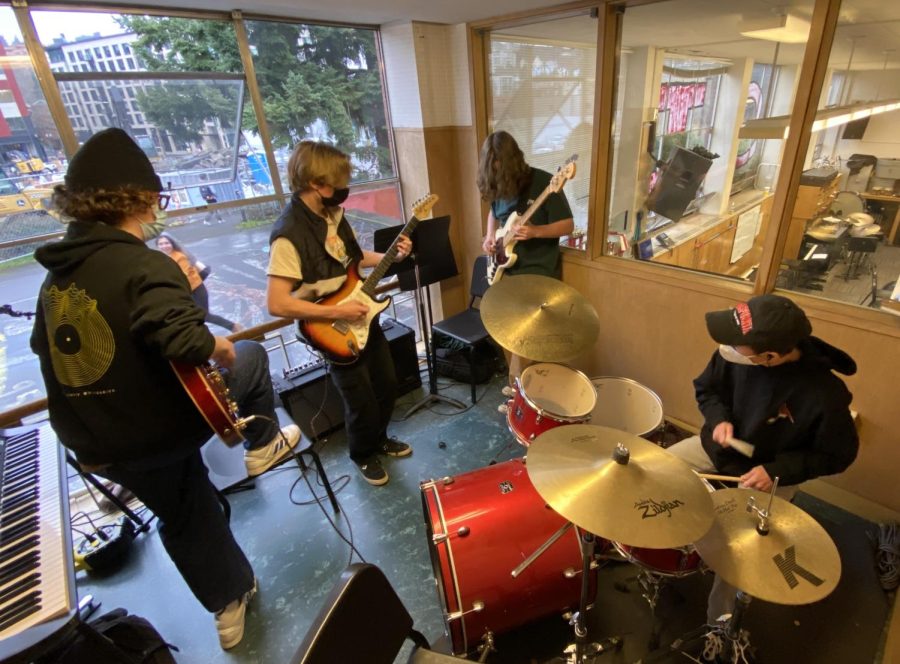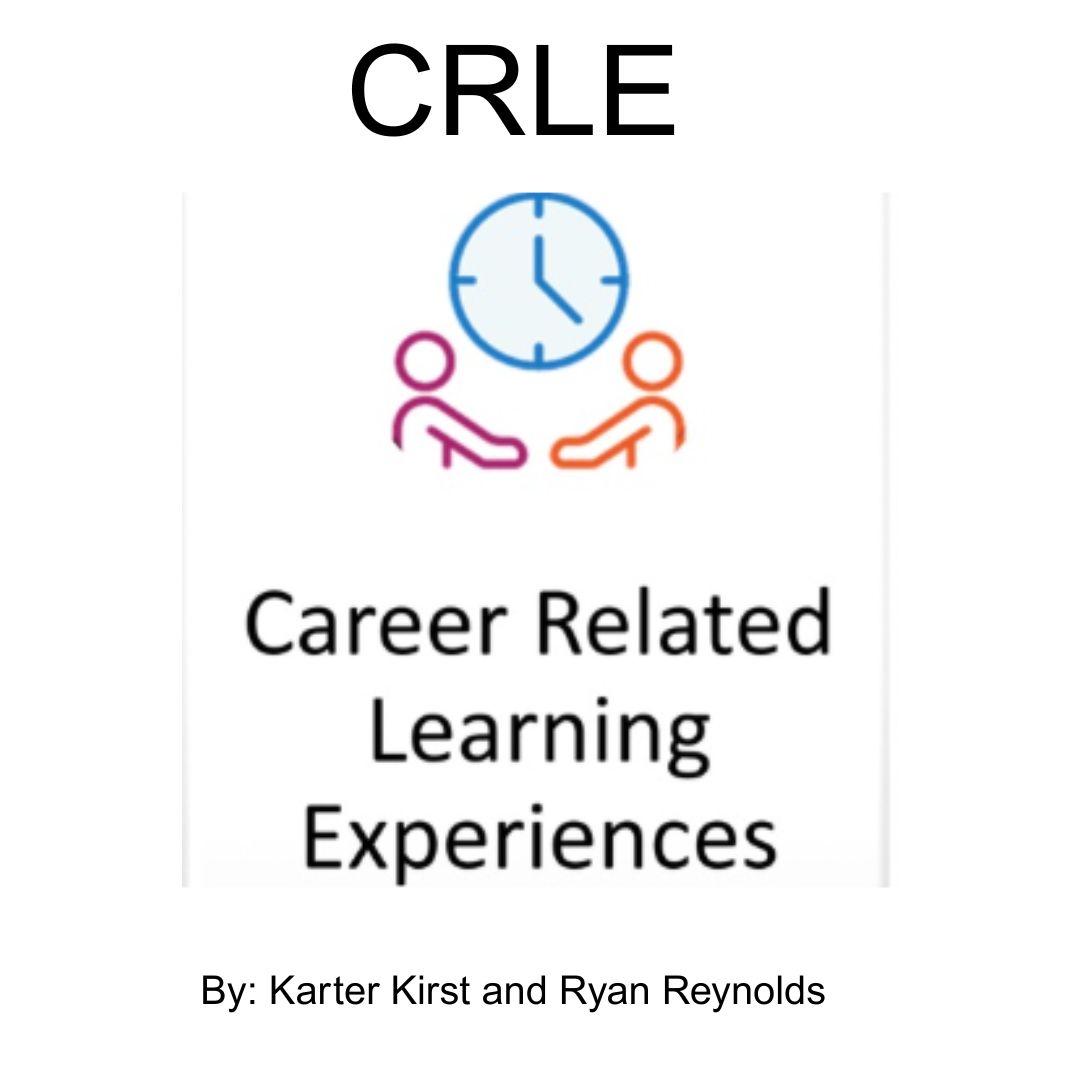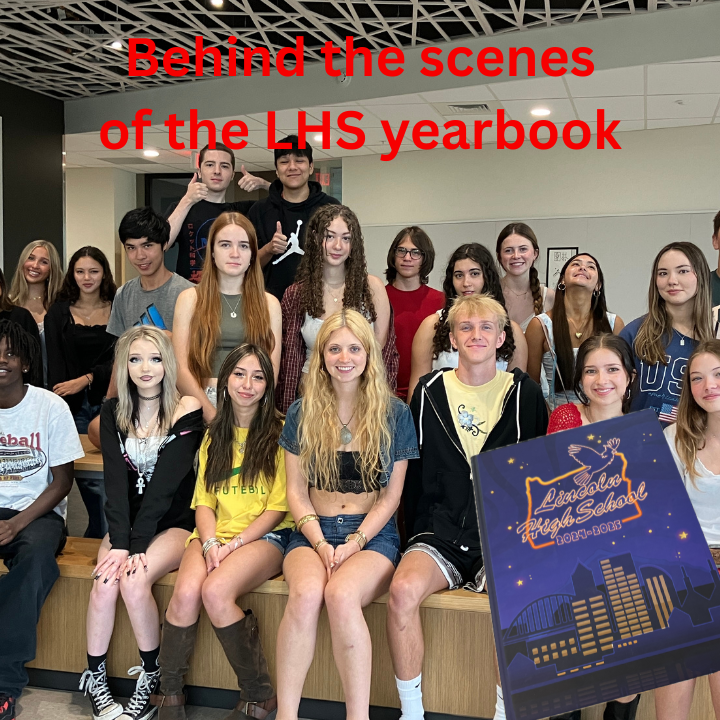Practice room musicians ignite Lincoln’s musical spirit
Musicians James Reamey, Chase Kochis, Beckett Gough and Seamus Robertson (left to right, respectively) play music in the practice room during lunch. Any students participating in band director David Kays’ classes are allowed to use the practice rooms.
February 3, 2022
Past the auditorium and towards the band room lies an obscured set of stairs that lead to the practice rooms. On any lunch or FLEX period and into the hours after school, the passionate strumming of guitars, striking of drums and pressing of piano keys reverberate through the rooms’ doors. It is the beating heart of Lincoln’s musical spirit.
Sophomore Mika Huber is a drummer in the Lincoln band. He often goes to the practice room during lunch or after school to play with other members.
Huber likes the culture of the practice rooms.
“[Band director David] Kays and [visual and performing arts teacher Jim] Peerenboom have always been super open to kids coming in to jam. It’s super chill here. You come in and just start playing,” Huber said. “You run into many different ideas when you come in; sometimes it’s a disaster, but other times something really cool happens. And that’s magic.”
Peerenboom has been Lincoln’s visual and performing arts teacher for multiple decades. His office is located adjacent to the two practice rooms, and he enjoys listening to students play.
“The music students are very dedicated, and they know how important it is to practice. I love that they enjoy hanging out together and creating music. Not everyone is [lucky enough to] get to have live music while they work every day,” Peerenboom said.
Huber also emphasized the importance of practice.
“Playing here has been the most magical musical experience of my life. Playing here motivates me to want to improve,” he said.
Sophomore Chase Kochis is a multi-instrumentalist who participates in the audio-engineering program. Kochis plays both the guitar and piano.
He uses the practice rooms quite often.
“I try to play there as much as possible. Every day during lunch, I stay in the school and go to play with Beckett [Gough] and Shamus [Robertson]. During FLEX a lot of the time I’m over there, if I don’t have work. I also play during study hall, which is my free period. Overall it averages to about an hour a day,” Kochis said.
Everyone at the practice rooms has a shared love of music.
“I’ve been playing music my whole life, since [as long as] I can remember,” said Kochis. “The culture and ideas of music are great. There’s nothing else I want to do other than play music. Music is people, music is expressing yourself in different ways. It’s telling a story. To me personally, music is everything. I want to do it as a job—to produce music, make soundtracks for movies. That’s my dream.”
Huber has advice to people who want to learn how to play music, but may not know where to start.
“Music is a series of vibrations that can express any type of emotion, and you can make it anyway you want. With music, you can pop your earbuds in and go to a whole other world, but you have to listen first. You have to understand music’s creative ability. You have to find your voice and your sound. Find an artist that you really care about and really gives you meaning, and in that you find this urge: ‘I really love this. I want to play that.’ You need to find that motivation or discipline; that passion that’s going to make you want to learn music.”
It’s that shared love of music—and that mutual appreciation for the efforts, talents and output of each individual—that makes the practice rooms special and unique, a welcoming community for everyone, musician and listener alike, to enjoy.




